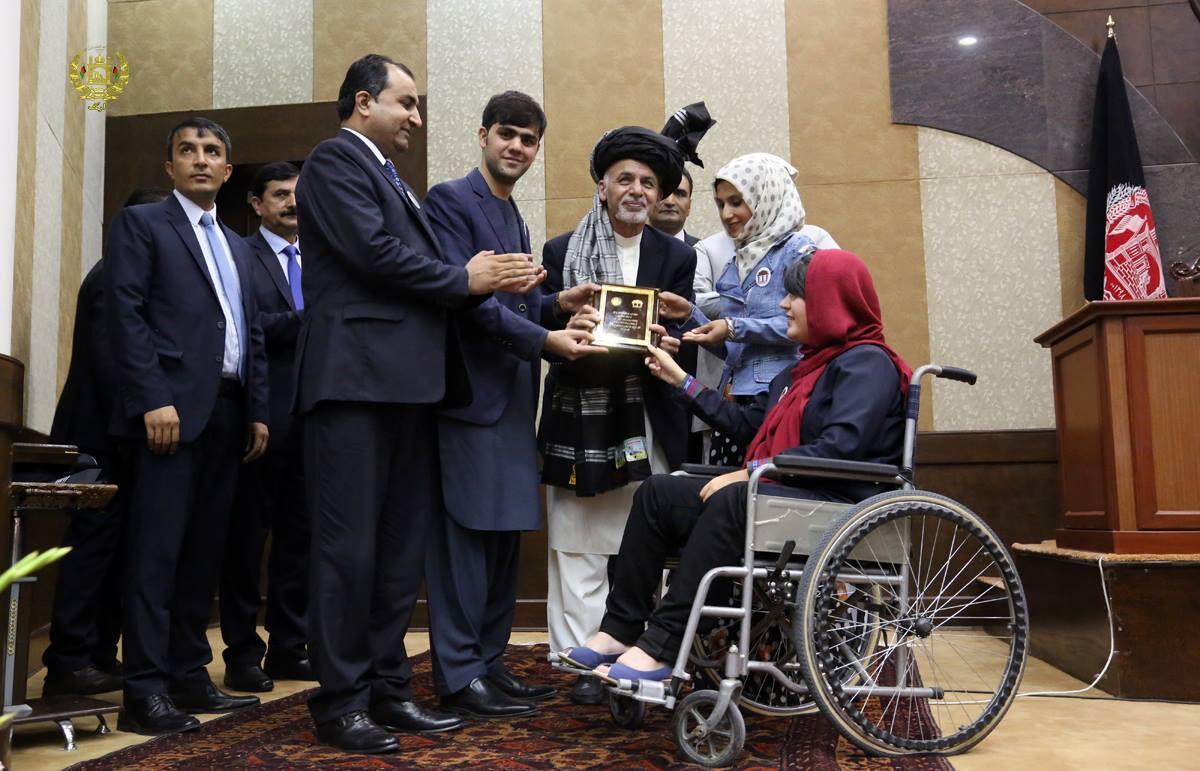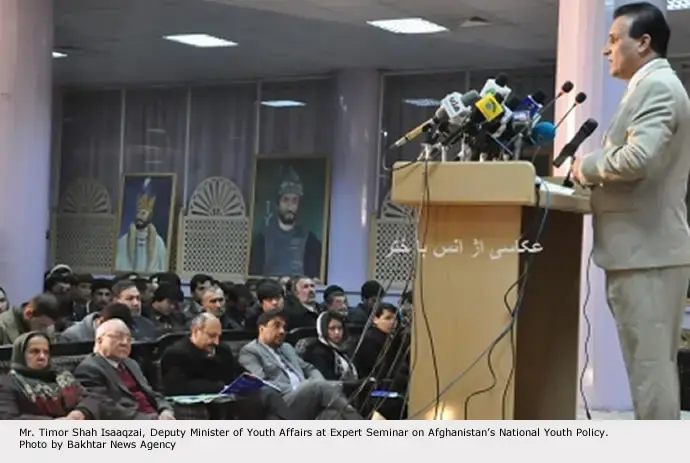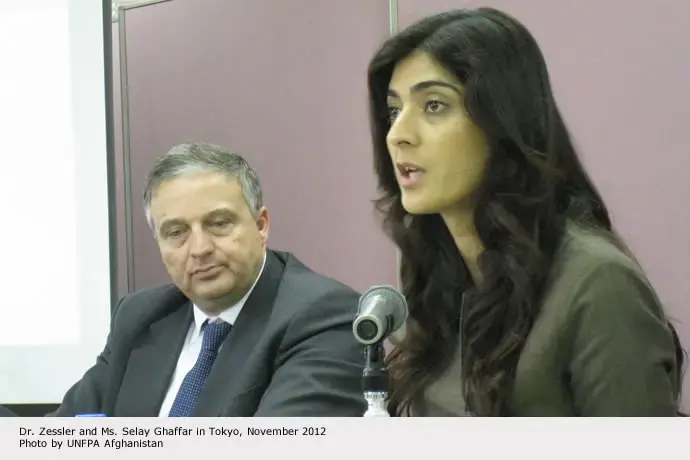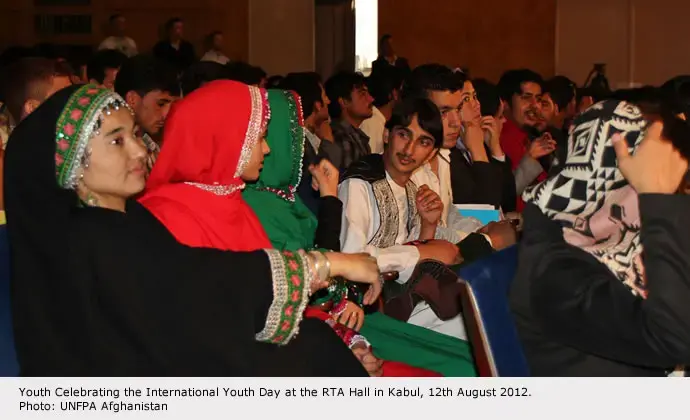President Mohammad Ashraf Ghani inaugurated the first Youth Parliament in Afghanistan on 14th August 2016 at the National Parliament’s upper chamber. The youth parliament was held from 14 – 17 August 2016 in Kabul. UNFPA supported the Deputy Ministry of Youth Affairs (DMoYA) and Wolesi Jirga to bring together 122 young men and women aged 18 – 30 from 34 provinces to the Afghan Parliament building to promote youth participation in decision making processes in the country.
Afghanistan has a young population, with 63 per cent below 25 and 43 per cent below the age of 15. Promotion of education, family planning and a decrease in infant and child mortality for both girls and boys, the country can realize a demographic dividend.
Additionally, the country needs to strategically invest in youth, especially girls’ empowerment, education and political and social participation.
“We will pay extra attention to youth issue in 2017 and I will personally make time to meet with them every week,” said H. E. Mohammad Ashraf Ghani, President of the Islamic Republic of Afghanistan, “this country needs a young administration and that is all of you.”
“On this day, I am very pleased to see young men and women from across the country. My message to all of you is to work together and work hard,” said Ms. Pernille Kardel, Deputy Special Representative (Political Affairs) of the Secretary General in Afghanistan. “It is with your efforts and hard work that Afghanistan shall pass through all the hardship and will prosper.”
The Youth Parliament brings 3 young people from each province, with an exception for very big provinces that can introduce 4 members to discuss issues of governance and development, have their voices heard and participate in the decision making processes that have impact on their lives. Furthermore, five members come from Nomadic populations, three from people with disabilities and one from minorities. More than 35 per cent of the members in the youth parliament are females.
The Youth Parliament will convene biannual sessions and focus on issues around health, education, youth participation, employment and sports in 5 commissions comprised of 23 young people each.
The discussions aim to identify challenges and opportunities and present recommended solutions and actions. The outcome is shared with concerned government ministries for consideration and action.
All members were between 18 – 30 years old. An initial 5,000 applications were received and the selection process was closely monitored by the DMoYA.





